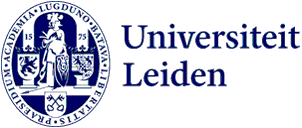Lecture
The thousand war-battalions of the btsan: everyday demons in Ladakh
- Date
- Thursday 21 April 2022
- Time
- Explanation
- (after the General Annual Meeting)
- Address
-
- Room
- 104 (Verbarium)
The lecture will be followed by drinks in the basement of Matthias de Vrieshof 3.

We are pleased to announce the next Friends of the Kern Institute lecture:
The thousand war-battalions of the btsan: everyday demons in Ladakh
The btsan form a prominent category in Tibetan demonology: warlike and red-skinned beings who cause illness and misfortune, typically depicted as armoured men on horseback. While btsan are associated with several worldly protector deities linked to major monastic institutions and forms of oracular possession, they are also the focus for mundane apotropaic behaviour among Buddhist laity in modern Ladakh. Yet Ladakhis describe these beings in ways that diverge from textual and ritual iconography, locating btsan in ghost stories and accounts of personal experience. These btsan appear in various and contradictory forms: as mirror-images of humanity, backless monsters, or bizarre and inexplicable things glimpsed at night. This lecture will discuss some of the problems raised by these inconsistent descriptions of btsan, examine the way this term is used by Ladakhi Buddhist laity, and consider the implications of this for an understanding of the relationship between textual categories and ordinary experience.

Callum Pearce
Callum Pearce is a lecturer in the study of religion in contemporary Asia at the Leiden University Centre for the Study of Religion (LUCSoR). He holds a PhD in Social Anthropology from the University of Aberdeen (Scotland, UK), and has conducted ethnographic fieldwork in Ladakh, India, in 2013, 2014, and 2019.
His doctoral thesis examined understandings of spirits and landscape among Buddhist laity in Ladakh, focusing on the contrast between lay knowledge and Tibetan Buddhist ritual imagery. Prior to this he studied at the University of Oxford and the University of London (UCL and SOAS).
